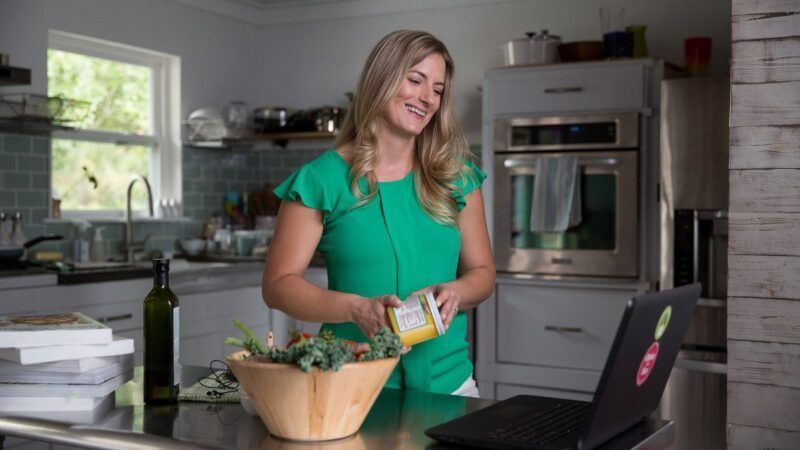Supreme Court Asked To Decide if Paid Diet Advice Is Protected by the First Amendment
A Florida woman has been threatened with fines for giving tips without the proper occupational licensing.

Do you have a constitutional right under the First Amendment to give people diet advice? The state of Florida says citizens can't get paid for it unless they have the proper occupational license, and a woman threatened with fines for breaking state regulations is asking the Supreme Court to uphold her freedom to suggest healthy meals.
Heather Kokesch Del Castillo is a health coach in Fort Walton Beach, Florida. She got in trouble with the state in 2017 because she was providing food advice to paying customers but is not a licensed dietitian (and doesn't claim to be). She was threatened with fines and misdemeanor charges if she didn't stop offering her services for money unless she becomes a licensed dietitian, which in Florida requires an undergraduate degree, 900 hours of supervised practice, testing, and fees.
Instead, she sued, represented by lawyers with the Institute for Justice. She argued that the First Amendment protected her right to be paid to give diet advice to willing customers. If she were to write a book providing diet advice, the state could not demand she be licensed as a dietician in Florida in order to sell the book in stores. That would be a clear First Amendment violation. Why would giving advice person-to-person be any different?
Unfortunately, so far the courts have not agreed with her or the Institute for Justice. In 2019, judges for the federal 11th Circuit upheld Florida's broad regulations and determined that Del Castillo's free speech rights were not unconstitutionally abridged.
The Institute for Justice believes that this decision runs counter to a Supreme Court ruling from 2018, NIFLA v. Becerra, where the Supreme Court determined that a law in California requiring pregnancy centers post notices informing women of the availability of free or low-cost services, including abortions, was unconstitutional. The two cases don't appear at first to be closely related, but in the majority ruling, Justice Clarence Thomas wrote, "Speech is not unprotected merely because it is uttered by 'professionals.' This Court has 'been reluctant to mark off new categories of speech for diminished constitutional protection.'"
Judges at the 11th Circuit concluded that the Supreme Court case the Institute for Justice referenced did not apply to Del Castillo's situation. So last week, the Institute for Justice submitted a petition to the Supreme Court to have the case considered there.
"The advice she wants to give (tips about what to eat or not eat) is the sort of advice that millions of Americans routinely give and receive without government intervention," the petition notes. "If that advice can be removed from the ambit of the First Amendment simply by adopting a licensing law, then any advice could be."
And heaven knows occupational licensing regulators have tried as much. The Institute for Justice has represented people in occupations as varied as engineering to tour-guiding who have had to deal with local governments attempting to forcefully shut their mouths.
"This case illustrates that occupational-licensing boards are America's newest censors," said Institute for Justice Senior Attorney Paul Sherman in a prepared statement. "In cases across the country, boards charged with regulating everything from engineers to psychologists to dieticians have decided that the power to license an occupation gives them the right to tell ordinary Americans to shut up. It is time for the Supreme Court to make clear that it gives them no such thing."


Show Comments (27)